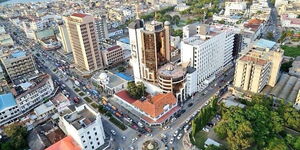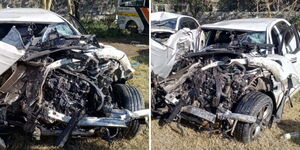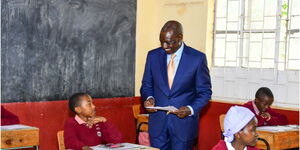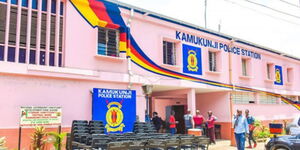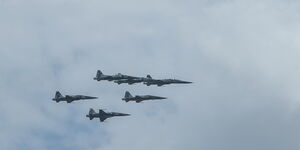The United Nations Security Council has adopted a resolution that will see Haiti get a new militarised Gang Suppression Force (GSF) to lead the fight against gangs in the Caribbean nation.
In the resolution sponsored by the United States, the GSF, to be composed of police officers, soldiers and civilians, will have a 12-month mandate and replace the Kenyan-led Multinational Security Support (MSS) Mission.
However, this does not necessarily mean that Kenyan police officers will leave Haiti, rather they will receive more support in the fight against the gangs that have crippled Haiti since 2021.
The GSF will consist of over 5,500 security personnel and will work in close coordination with the Haitian National Police (HNP) and the Haitian armed forces to conduct intelligence-led operations to neutralise gangs, provide security for critical infrastructure, and support humanitarian access.
The resolution assured that the GSF will receive direct support from the UN, with the establishment of a UN Support Office in Haiti (UNSOH) amongst the provisions.
The Office will also provide logistical and operational support to the GSF, HNP and Haitian armed forces, including rations, medical care, transportation, strategic communications and troop rotation.
UNSOH will also support the Organization of American States’ SECURE-Haiti project and ensure compliance with international human rights standards.
In terms of operations and funding, the new force will still rely on voluntary contributions of personnel and funding, but the leadership structure will be different.
It will be led by a group of representatives from countries that have contributed personnel, plus the US and Canada.
The latest comes amid the looming expiry of the current MSS mission, which critics argued faced chronic underfunding, insufficient personnel, and limited operational capacity, making it difficult to contain gangs that now control large parts of the capital, Port-au-Prince.
Speaking at the UN General Assembly last week, President William Ruto hit out at global leaders for neglecting the Haiti mission, further claiming that armoured vehicles donated by the US were second-hand.
While he expressed support for an expanded force, Ruto noted that Kenya would only send out its officers if there was predictability in resource allocation and sustained funding.
The resolution – co-penned by Panama and the United States, and backed by dozens of countries in the region and beyond, was adopted by a vote of 12 in favour, with three abstentions from China, Pakistan, and Russia.

